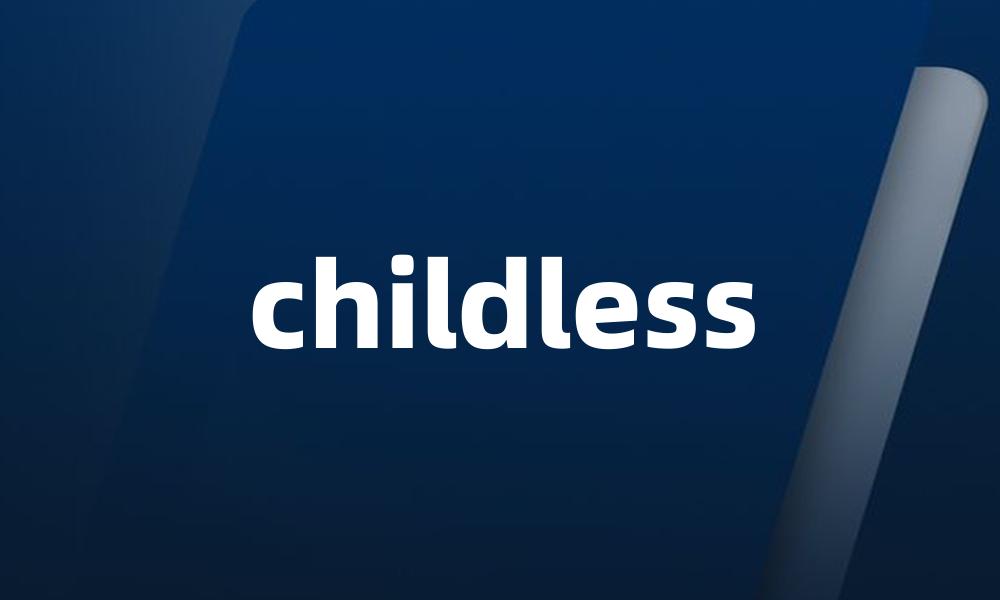
词汇分析:childless
“childless” 是一个形容词,意指“没有孩子的”,通常用来形容一个人或一对夫妇没有生育或收养任何孩子。这一词语在日常用语中常被用来讨论家庭结构、社会期望以及个人选择。
形容词与名词含义
“childless”主要作为形容词使用,表示某人或某家庭没有子女。它并没有作为名词的使用形式。
词语辨析
与“childless”相关的词汇包括“childfree”(选择不生育的)和“infertile”(不孕的)。虽然这几个词都有“不育”的含义,但“childless”更侧重于状态,而“childfree”则强调个人选择。
词汇扩充
相关词汇包括:
- childbearing(生育)
- parenthood(为人父母)
- infertility(不孕)
近义词
- unparented(没有父母的)
- without children(没有孩子的)
反义词
- parented(有孩子的)
- fertile(能生育的)
用法
在句子中,"childless" 通常放在名词前作为修饰语,描述没有子女的状态。
例句
-
Many couples choose to remain childless for various reasons.
许多夫妇由于各种原因选择保持没有孩子。
-
Being childless can lead to different lifestyle choices.
没有孩子可以导致不同的生活方式选择。
-
She often feels lonely as a childless woman.
作为一位没有孩子的女性,她常常感到孤独。
-
Many childless individuals focus on their careers.
许多没有孩子的人专注于他们的职业。
-
They have a childless marriage, which works well for them.
他们有一段没有孩子的婚姻,这对他们来说很合适。
-
Society often pressures childless couples to have children.
社会常常施加压力于没有孩子的夫妇,让他们生育。
-
There are support groups for childless individuals.
有针对没有孩子的个体的支持小组。
-
Some childless couples travel more frequently.
一些没有孩子的夫妻更频繁地旅行。
-
Being childless allows for more flexibility in life.
没有孩子使生活更加灵活。
-
They are happy and childless by choice.
他们很快乐,并且是自愿没有孩子。
-
There are both advantages and disadvantages to being childless.
作为没有孩子的人有利有弊。
-
She felt a sense of freedom as a childless adult.
作为一名没有孩子的成年人,她感到一种自由感。
-
Some people prefer a childless lifestyle.
有些人更喜欢没有孩子的生活方式。
-
They faced societal stigma for being childless.
他们因没有孩子而面临社会的偏见。
-
Being childless can be a personal choice or due to circumstances.
没有孩子可能是个人选择或出于某种情况。
-
Many childless people engage in community service.
许多没有孩子的人参与社区服务。
-
They have developed strong friendships as a childless couple.
作为一对没有孩子的夫妇,他们建立了牢固的友谊。
-
Some childless individuals adopt pets instead.
一些没有孩子的人选择收养宠物。
-
People often have misconceptions about childless families.
人们常对没有孩子的家庭有误解。
-
Being childless can provide opportunities for personal growth.
没有孩子可以提供个人成长的机会。

 小皮
小皮